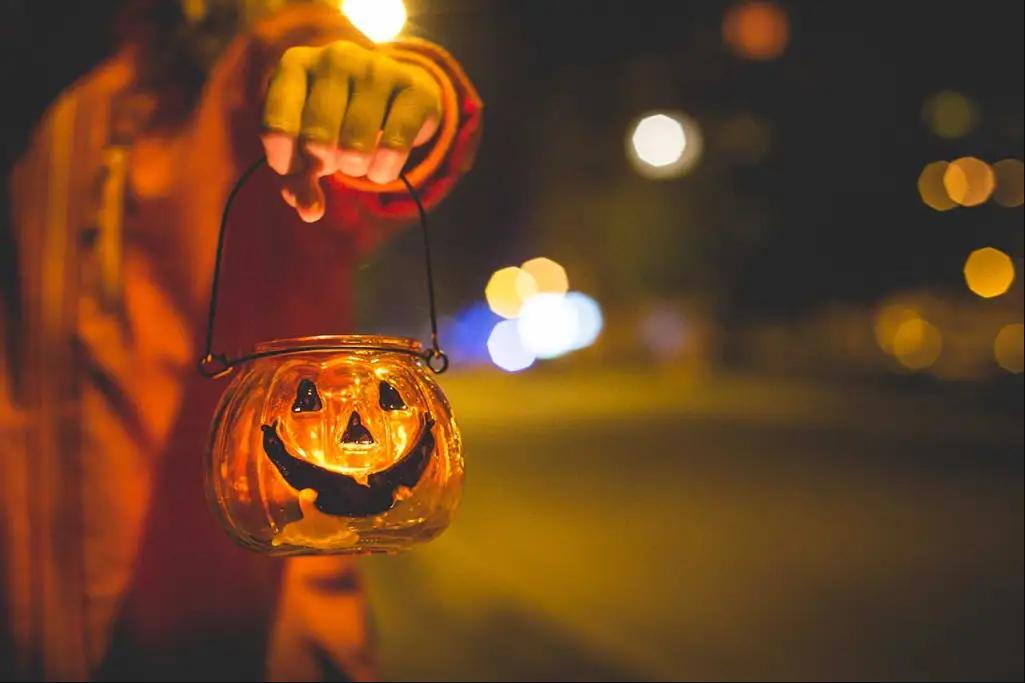Choosing a costume for you or your little one.

- posted: Oct. 16, 2018
It’s finally October; cooler weather, leaves changing, and pumpkin EVERYTHING! Halloween is also some of your’s favorite holiday, weather you’re excited to take your little one trick-or-treating, or you are excited to go about out in a costume yourself. There are thousands upon thousands of Halloween costumes to choose from, but some of them can be very offensive which, I can imagine, is something that no one wants to intentionally do. I wanted to take this time to share some tips on how to be culturally sensitive when choosing a Halloween costume for you or your little one.
First and foremost, let’s define Cultural Appropriation and compare it to cultural appreciation. Cultural Appropriation is “the act of taking or using things from a culture that is not your own, especially without showing that you understand or respect this culture” (Cambrige Dictionary). This is also tied to the understanding that most often, the privileged group is taking the identity or dress from a marginalized group. This action of taking from another began with the colonization and taking of other peoples. When the English took Indian jewels and displayed them as their own, that was Cultural Appropriation. On the other hand, cultural appreciation is “the consent to participate in some culture and both sides mutually benefit and gain understanding of each other” (Spring Institute). This means, if the English people had asked the people of India permission to display the Indian jewels as Indian jewels, learned about the Indian culture, and provided the Indian people with something in return that would be cultural appreciation.
With the understanding of Cultural Appropriation a person might understand that all costumes that depict someone’s culture is Cultural Appropriation. For example, Native American style headdresses are commonly paired with a brown piece of clothing depicting a loincloth or a dress. Did you know a headdress is sacred and only bestowed upon the most brave and powerful of the Native tribe? Each headdress has a specific meaning to each tribe and each headdress represents the culture of the tribe. Furthermore, each piece of the headdress has a sacred meaning; for example the feathers represent a brave act the warrior has completed. When a person wears this sacred item as a costume they are not respecting the meaning and honor behind it which is Cultural Appropriation. Another example of a costume that is Cultural Appropriation is a colorful poncho paired with an oversized sombrero, a fake mustache, and a belt to hold beer bottles, sometimes labeled “Tequila Bandito”. Hispanic people are a marginalized group and currently are fearing for their life for simply being Hispanic. The Hispanic culture is rich with traditions and honor that is not appreciated when it is used as a satirical costume. When privileged people wear the culture of a group of persons fearing for their lives in the United States, that’s Cultural Appropriation. What about the fat suit costume, with the small white underpants, paired with a black wig tied into a bun; a Sumo Wrestler. Did you know that this style of wrestling originated in ancient times and include religious backgrounds? Again, this is a sacred practice being used by privileged individuals without the consent or respect of the Japanese culture.
Costumes that appropriate cultures are extremely offensive and can cause feelings of anger, embarrassment, and a sense of “otherness” from others. A sense of “otherness” means feeling like one doesn’t belong in society and isn’t welcome by others around them. This can increase feelings of depression and sometimes shame towards one’s own culture because it is being mocked and used as a caricature. Now let’s talk about what you or your little ones can be for Halloween that isn’t Cultural Appropriation. Popular costumes include animal costumes, some cartoon characters, some television characters, insects, and objects such as a tea kettle. Couple and group costumes can be a great idea to dress up as a musical group, characters of a television show, or “punny” costumes you can find on Pinterest have become very popular
Happy Halloween and happy costume hunting!

- posted: Oct. 16, 2018
It’s finally October; cooler weather, leaves changing, and pumpkin EVERYTHING! Halloween is also some of your’s favorite holiday, weather you’re excited to take your little one trick-or-treating, or you are excited to go about out in a costume yourself. There are thousands upon thousands of Halloween costumes to choose from, but some of them can be very offensive which, I can imagine, is something that no one wants to intentionally do. I wanted to take this time to share some tips on how to be culturally sensitive when choosing a Halloween costume for you or your little one.
First and foremost, let’s define Cultural Appropriation and compare it to cultural appreciation. Cultural Appropriation is “the act of taking or using things from a culture that is not your own, especially without showing that you understand or respect this culture” (Cambrige Dictionary). This is also tied to the understanding that most often, the privileged group is taking the identity or dress from a marginalized group. This action of taking from another began with the colonization and taking of other peoples. When the English took Indian jewels and displayed them as their own, that was Cultural Appropriation. On the other hand, cultural appreciation is “the consent to participate in some culture and both sides mutually benefit and gain understanding of each other” (Spring Institute). This means, if the English people had asked the people of India permission to display the Indian jewels as Indian jewels, learned about the Indian culture, and provided the Indian people with something in return that would be cultural appreciation.
With the understanding of Cultural Appropriation a person might understand that all costumes that depict someone’s culture is Cultural Appropriation. For example, Native American style headdresses are commonly paired with a brown piece of clothing depicting a loincloth or a dress. Did you know a headdress is sacred and only bestowed upon the most brave and powerful of the Native tribe? Each headdress has a specific meaning to each tribe and each headdress represents the culture of the tribe. Furthermore, each piece of the headdress has a sacred meaning; for example the feathers represent a brave act the warrior has completed. When a person wears this sacred item as a costume they are not respecting the meaning and honor behind it which is Cultural Appropriation. Another example of a costume that is Cultural Appropriation is a colorful poncho paired with an oversized sombrero, a fake mustache, and a belt to hold beer bottles, sometimes labeled “Tequila Bandito”. Hispanic people are a marginalized group and currently are fearing for their life for simply being Hispanic. The Hispanic culture is rich with traditions and honor that is not appreciated when it is used as a satirical costume. When privileged people wear the culture of a group of persons fearing for their lives in the United States, that’s Cultural Appropriation. What about the fat suit costume, with the small white underpants, paired with a black wig tied into a bun; a Sumo Wrestler. Did you know that this style of wrestling originated in ancient times and include religious backgrounds? Again, this is a sacred practice being used by privileged individuals without the consent or respect of the Japanese culture.
Costumes that appropriate cultures are extremely offensive and can cause feelings of anger, embarrassment, and a sense of “otherness” from others. A sense of “otherness” means feeling like one doesn’t belong in society and isn’t welcome by others around them. This can increase feelings of depression and sometimes shame towards one’s own culture because it is being mocked and used as a caricature. Now let’s talk about what you or your little ones can be for Halloween that isn’t Cultural Appropriation. Popular costumes include animal costumes, some cartoon characters, some television characters, insects, and objects such as a tea kettle. Couple and group costumes can be a great idea to dress up as a musical group, characters of a television show, or “punny” costumes you can find on Pinterest have become very popular
Happy Halloween and happy costume hunting!
Send A Message
Traci Lowenthal
700 E. Redlands Blvd,
Suite U-607,
Redlands, CA 92373
Office Hours
Office Hours are Available by Request
Monday - Sunday
Available by Request

